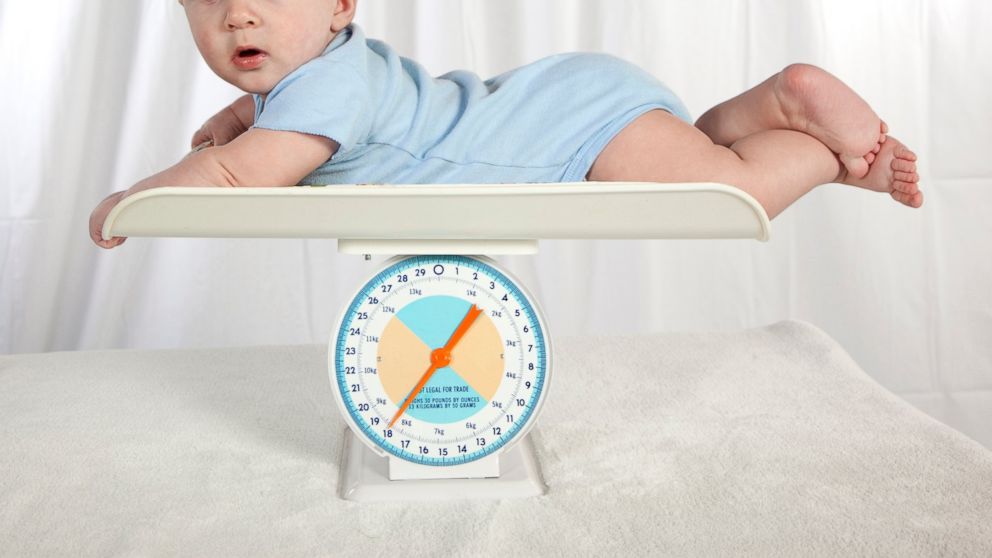The Baby Diet: How Eating Like a Toddler Could Help You Lose Weight
Eating baby food? Not exactly.

— -- About a month ago, I found myself up at 5 a.m., preparing meals for my 1-year-old before everyone awoke and I left for work. Sweet potato in the oven. Couscous on the stove top. Dicing the store-bought rotisserie chicken into pieces friendly for tiny fingers. Then I moved onto breakfast. Scrambled eggs, toast and yogurt.
I'm no chef, but it occurred to me that this food looked pretty good. I laughed to myself, realizing I wouldn't be eating any of it. I never eat breakfast, generally grab a grilled chicken wrap from the ABC cafeteria for lunch and get takeout frequently for dinner.
Isn't it funny that I spent so much time planning well-balanced, healthy meals for my baby and never gave a second thought to what I was eating? Or when for that matter? I would never allow one of my kids to skip breakfast -- never. And yet I did it every day.
And so I got to thinking about going on a baby -- or more specifically -- my baby's -- diet. Three meals plus one snack each day. What would happen if I just ate exactly what I was feeding my 1-year-old? Larger portions, of course, and please hold the two bottles of almond milk per day that he drinks. But I'll keep my coffee.
At the same time I was about to embark on my experiment, I got a pitch for a story from a nutritionist for -- you guessed it -- The Baby Diet. Turns out I wasn't the only one thinking the tiniest among us might hold the key to eating better. New York-based nutritionist Nicolette Pace said babies have a natural rhythm when it comes to eating that we as adults lose at some point as we grow.
"We need to look to our babies for the answers," she said.
Pace points out that we used to be a 9-to-5 workday society. "Now," she said, "it's more like 5 to 9. We prioritize everything above eating. But our babies -- if they're hungry we'll move hell and high water to make sure they're fed."
But as adults, she added, we rarely do the same for ourselves.
Other baby behaviors that adults could benefit from: Pushing food away when we're no longer hungry, and not skipping meals.
And would you allow your baby to snack on chips all day long? Probably not. So why do we?
And so the experiment began, the week of Thanksgiving no less, when diet pitfalls are everywhere.
Day 1 Breakfast: One scrambled egg and Greek yogurtLunch: Three chicken nuggets and peasSnack: Grapes and crackers and hummusDinner: Chicken-veggie stir fry
Day 2 (minus 0.8 ounces from my original weight) Breakfast: Half a bagel-thin with hummus and avocadoLunch: Chicken stir fry veggies and riceSnack: Greek yogurtDinner: Avocado-Mexican cheese wrap
Day 3 (minus 1.9 pounds) Breakfast: Oatmeal with fruit, and toast with hummus Lunch: Couscous, and turkey and cheese mini wrap Snack: Cheese and crackers Dinner: Turkey, stuffing and green beans
Day 4: (minus 2.7 pounds)Breakfast: Bacon, egg and cheese Snack: Yogurt Lunch / Dinner: Turkey, stuffing, veggies, dinner roll, cranberry relish
Day: 5: (plus 0.3 ounces)
In total I lost more than 2 lbs in four days on the baby diet. I was never hungry, had more energy and ate more well-balanced meals that I would have eaten had I not been mimicking my toddler's diet.
More Tips from Nicolette Pace:
- Pace said controlling portions -- and knowing what our stomachs can handle -- is key. "A newborn's stomach is about the size of a cherry," she said. "It grows as they grow and by adulthood our stomachs are about the size of a softball."
- It's important to take your time. "Babies don't rush through their meals. They slow down and enjoy." Meals, she said, should last at least 15 minutes.
- Eat in intervals. Food is going to stay in your stomach for two to four hours.




